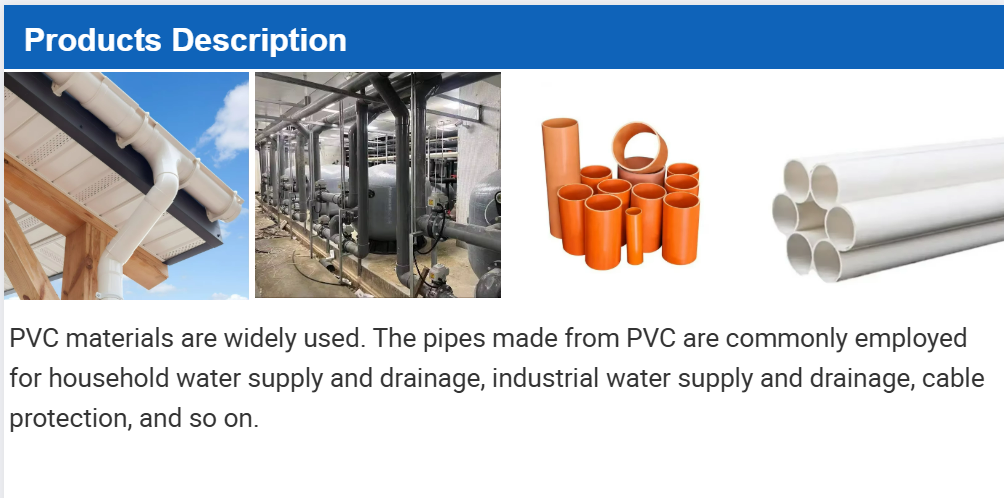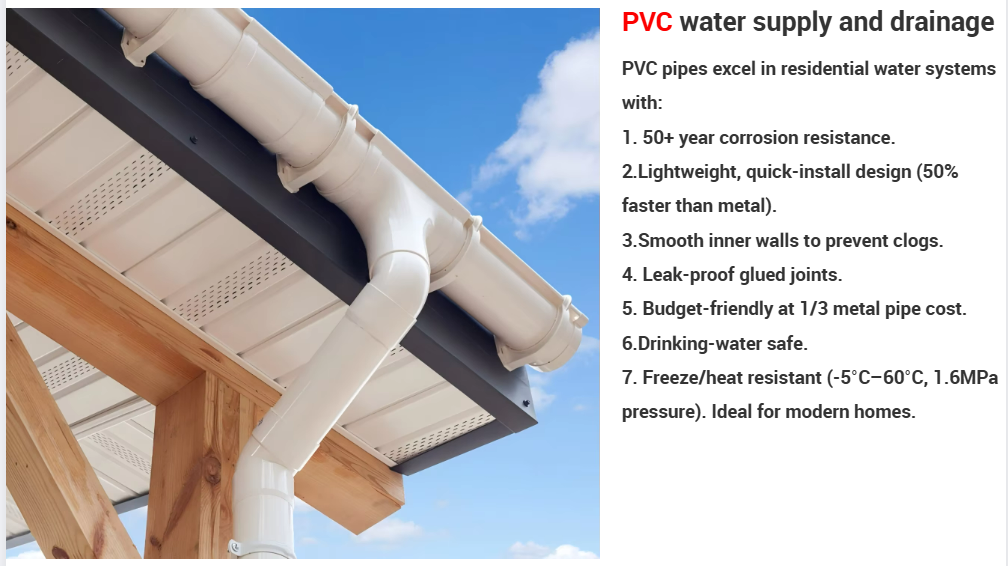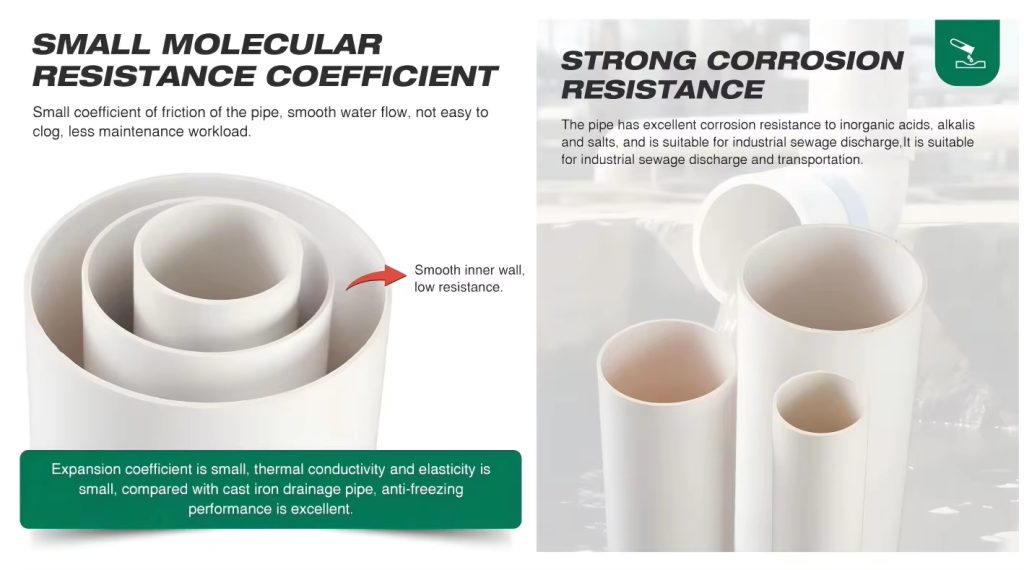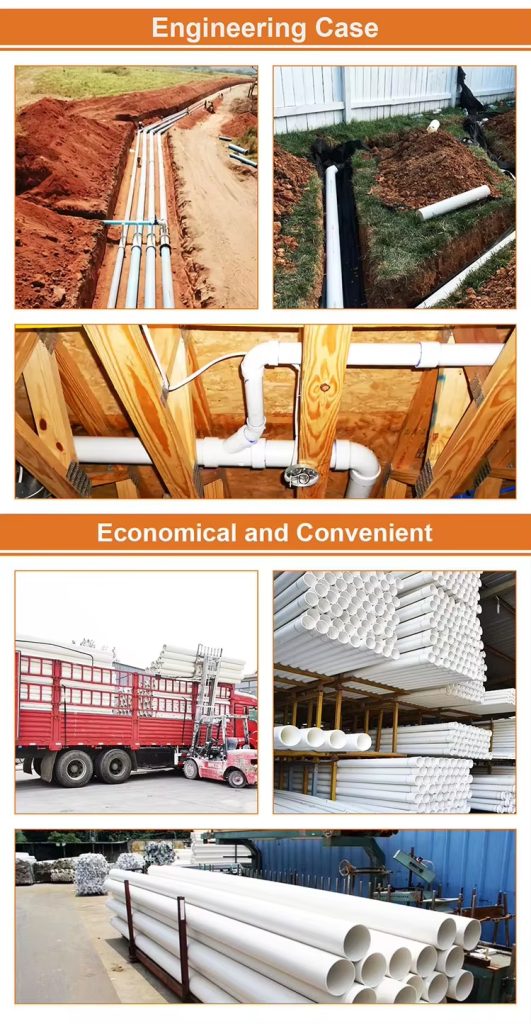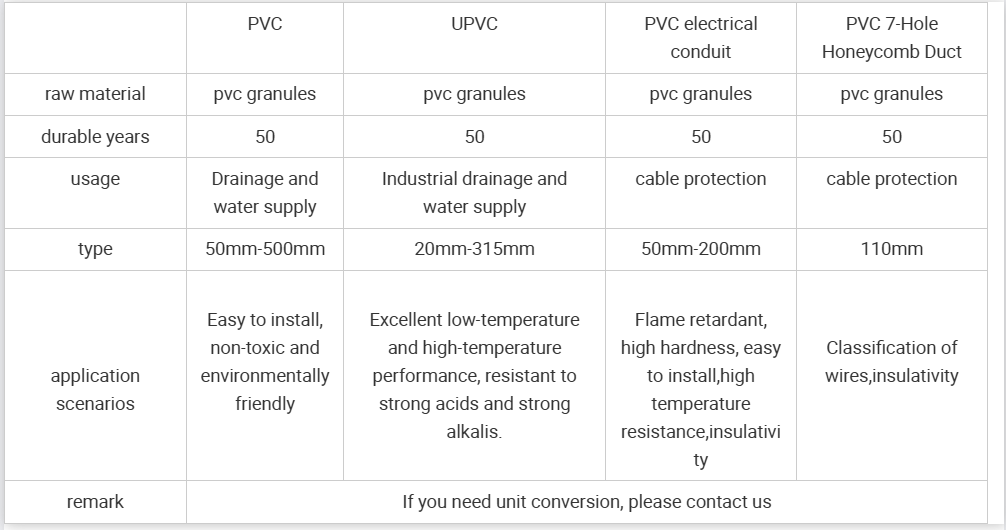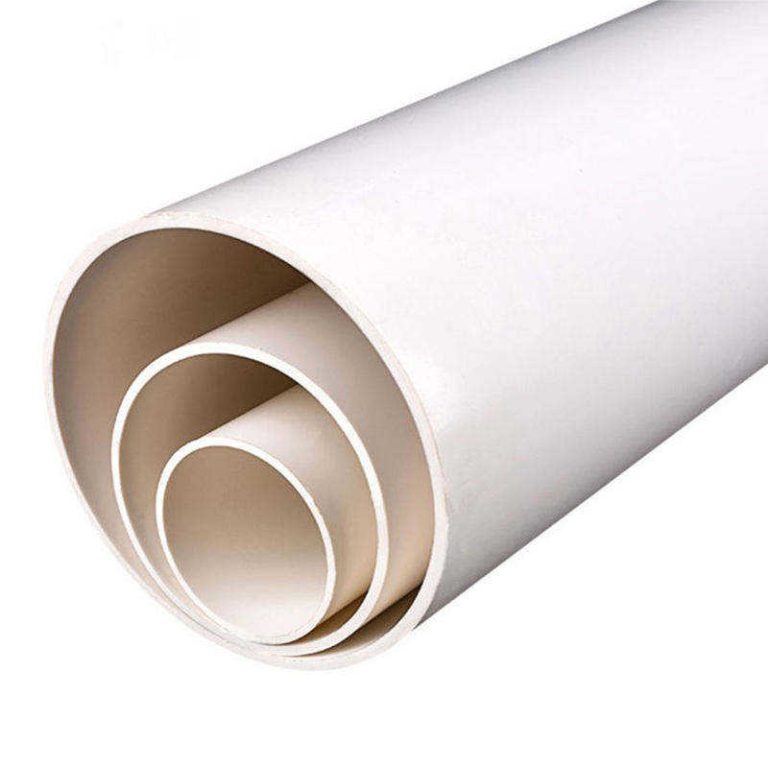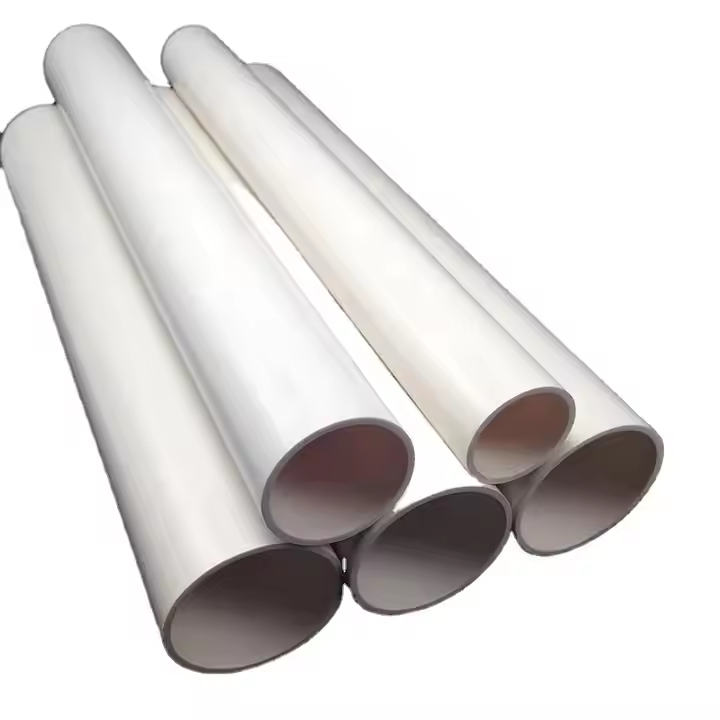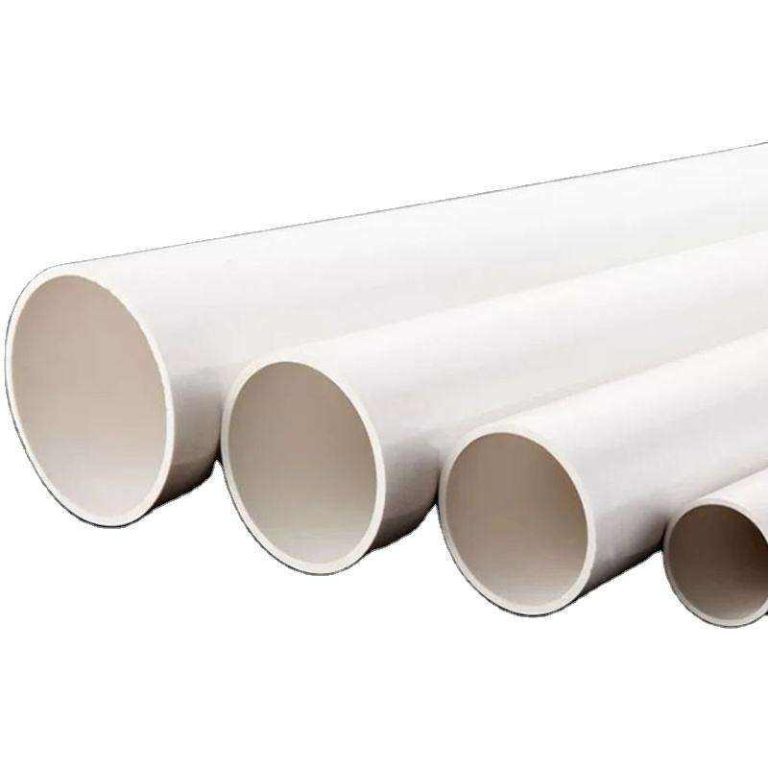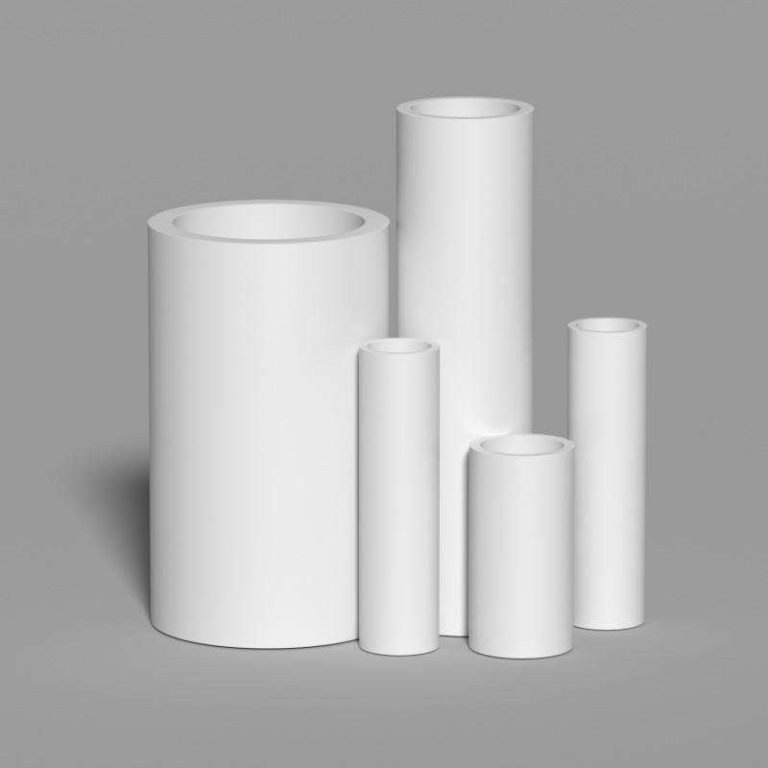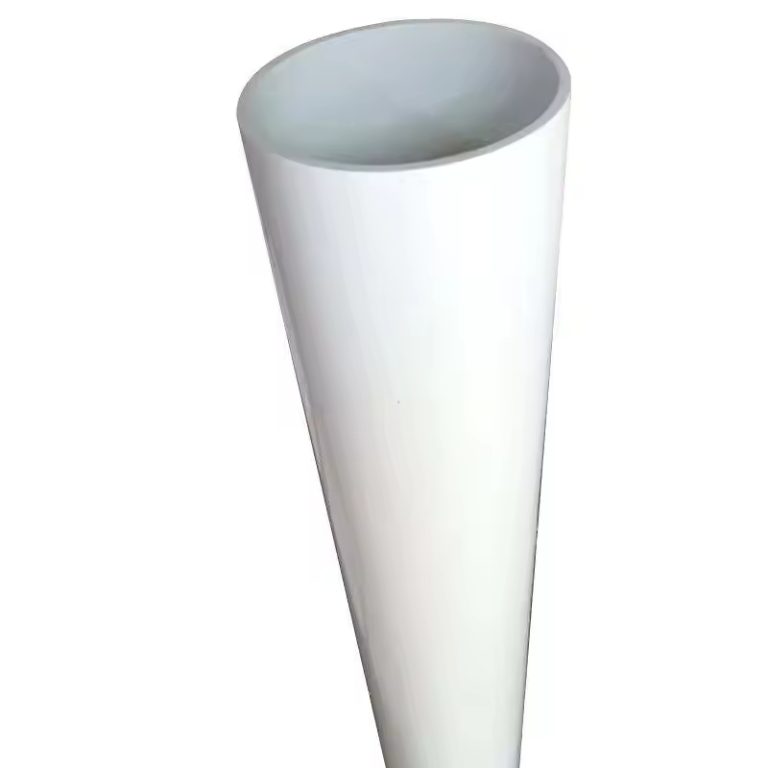PVC (Polyvinyl Chloride) pipes are a premier thermoplastic piping solution renowned for their exceptional performance in fluid transport systems. Manufactured from high-grade PVC resin, these pipes combine lightweight properties with structural durability and superior corrosion resistance, making them an ideal, cost-effective alternative to traditional metal or concrete pipes
. They are engineered for a long service life, often exceeding 50 years under standard operating conditions, and are compliant with international standards such as ISO, ASTM, and GB . Widely used in potable water systems, irrigation, drainage, and industrial applications, PVC pipes ensure efficient and reliable fluid conveyance .
Key Advantages
Exceptional Durability and Long Service Life
PVC pipes are designed to withstand significant environmental stressors, including soil movements, pressure fluctuations, and harsh chemicals. They are immune to rust, electrolytic corrosion, and degradation from acids and alkalis, ensuring a maintenance-free service life of over 50 years
. Their high impact strength and pressure resistance (with pressure ratings typically ranging from PN6 to PN25) make them suitable for demanding underground and industrial environments .
Superior Corrosion and Chemical Resistance
A primary advantage of PVC pipes is their innate resistance to a wide spectrum of corrosive substances. Unlike metal pipes, they will not rust or scale, preserving water quality and ensuring consistent flow rates over decades
. This makes them particularly suitable for transporting wastewater, agricultural chemicals, and industrial effluents without risk of internal degradation .
Hydraulic Efficiency and Smooth Interior
The hydraulically smooth inner surface of PVC pipes (Manning coefficient: 0.009) minimizes friction loss, allowing for higher flow rates compared to traditional materials
. This efficiency can lead to energy savings of up to 30% in pumping systems and prevents the buildup of scale and biofilm, ensuring consistent performance and water purity .
Lightweight and Easy Installation
Weighing approximately 1/8 of comparable steel pipes, PVC pipes drastically reduce transportation and handling costs
. Their lightweight nature, combined with simple jointing methods like solvent cement welding, enables rapid installation with minimal labor and equipment, accelerating project timelines and reducing overall costs .
Cost-Effectiveness and Low Maintenance
PVC pipes offer a lower initial investment and lifecycle cost. Their durability and resistance to corrosion eliminate the need for protective coatings and frequent repairs, leading to significantly lower maintenance expenses—up to 70% less than cast iron or concrete alternatives
